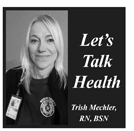Preparing for College with up-to-date meningococcal vaccine
If you have a student or family member starting college, you’ll need to be prepared with a vaccination record showing up-to-date meningococcal vaccination. On a vaccination record, it might be written as MCV4 or MenACWY.
Your child would have gotten this same vaccine right before 7th grade. It is recommended to be given again with a booster dose around age 16 or before college entry. Some teens may also get a MenB vaccine also called serogroup B meningococcal vaccine preferably at 16 through 18 years old. There may be an increased risk because of an outbreak of this serogroup B meningococcal disease, or their doctor may recommend it for certain medical conditions. Rates of meningococcal disease have declined in the U.S. since the 1990s and are still considered to be low today. However, reports of meningococcal disease have been on the rise. The CDC has issued a recent advisory alerting clinicians to be aware of symptoms, aware of who may be most affected by the increase and the need for up-to-date meningococcal vaccine. Meningococcal disease can affect anyone. So, who’s at risk with the current increase in cases? The current strain is primarily affecting people aged 30-60 years, black or African American people and people with HIV. Meningococcal disease is a serious bacterial infection that requires immediate medical attention and can be life threatening. Symptoms can at first be nonspecific, and flu-like. The most common type is meningitis, an infection of the lining of the brain and spinal cord. Symptoms of meningitis are fever, headache, stiff neck, nausea, vomiting, eyes sensitive to light and confusion. Meningococcal disease can also be presented as a bloodstream infection where bacteria get into the blood. Symptoms could be fever, chills, fatigue, vomiting, cold hands and feet, severe aches, rapid breathing, diarrhea and in later stages a dark purple rash. Generally, it takes close or lengthy contact (like roommates in college) to spread the disease, and it is spread by sharing respiratory and throat secretions (coughing, kissing). Meningococcal disease is rare but has a fatality rate of 10 to 15%, meaning the proportion of people who have been diagnosed with a certain disease and end up dying from it. Getting preteens, teens and adults with certain risk factors protected is important for keeping infections down and avoiding serious complications from meningococcal disease. If you need help getting your teen ready for college with vaccines and have health insurance, your local pharmacies are quick places to go or get in to see your primary physician. The health unit has vaccine for uninsured, Medicaid recipients and there are some other qualifying factors. Call us today if you need help accessing your vaccine record from the state registry, IMMTRAC2. Reference: cdc.gov
